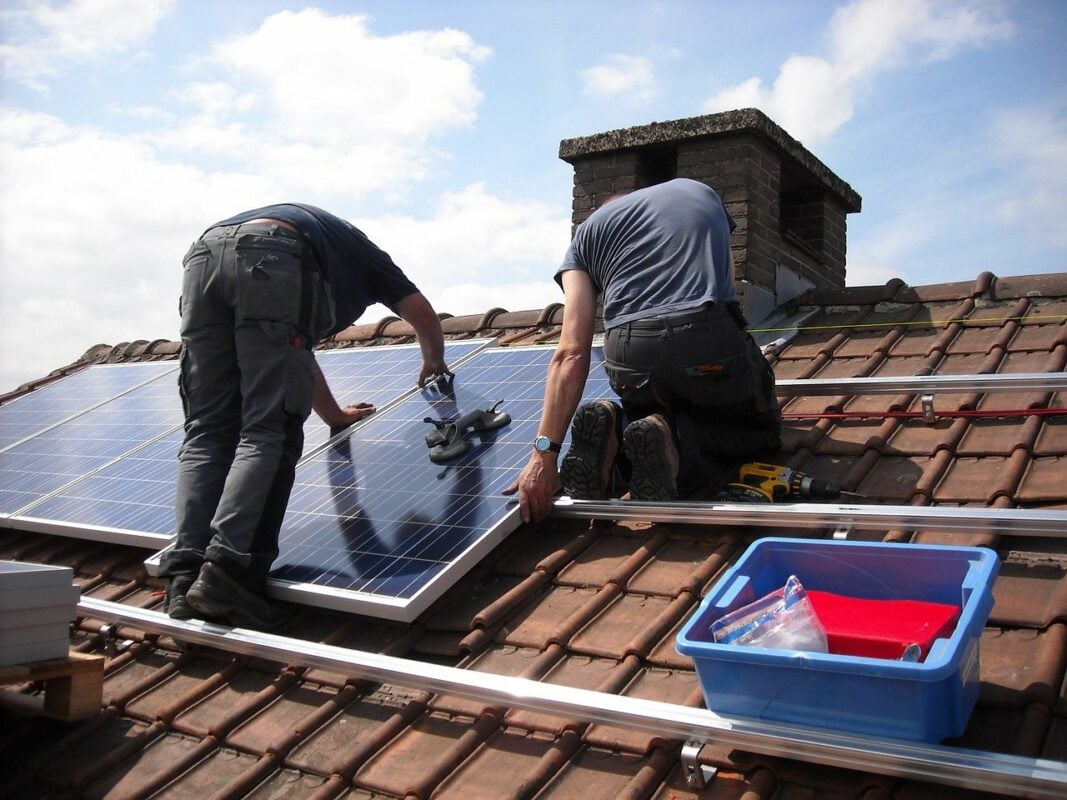
Expanding shared ownership models is one way of supporting solar uptake among a wider range of people, the research found. Image: Maria Godfrida (Pixabay).
New research from the University of Sussex has highlighted how increased government support is needed to make solar viable for a range of consumers.
Particularly, increased support is needed to make solar viable for elderly homeowners, student renters and the disabled, the research said, suggesting policy initiatives such as tax incentives and grants to help lower the cost of installing solar into neigbourhoods with high deprivation.
The academics involved in the research also recommended broadening out recent interest-free loan systems for electric vehicles (EVs) to incorporate the installation of solar PV.
Additionally, expansion of shared-ownership business models, including cooperatives or council-led schemes offering solar deployment and maintenance to homes that cannot pay, would help students, renters and non-homeowners, the academics found.
Benjamin K Sovacool, professor of energy policy in the Science Policy Research Unit at the University of Sussex Business School, said the research found that solar energy adoption can exacerbate inequalities in a variety of ways, including its availability to different groups of people.
“There are also disparities in terms of where people live in the UK and the availability of a skilled workforce or infrastructure to support solar power, inequity in the way that pollution and waste can impact nature, and a generational imbalance in the future burdens of maintenance and repair and rebounds in energy consumption.”
Demographic inequities within solar PV deployment, such as unfair adoption patterns within social groups often categorised by gender, income, age or race, can be partially remedied by cheaper, smaller systems or the shared ownership business models, the research found.
Additionally, spatial inequities such as a lack of access to clean air in the local environment can be offset by targeted skills training or policy incentives that seek to even out geographic adoption patterns, while temporal inequities such as shifting burdens onto future generations or issues of intergenerational equity can be addressed through innovations in technology, especially inverters, and extended producer responsibility.
The research found a need for policies that meet the challenges of maintenance, repair, removal and remanufacture of solar PV systems, with this including extended producer responsibility and takeback schemes for broken or retired solar systems. This would help to tackle what the researchers said is a “growing waste issue” within the industry.
However, the research also identified some homeowners who used their solar generation to justify increased use of electrical appliances, with progressive energy tariffs or in-home displays as part of a package of wider energy awareness and demand reduction measures possibilities for disincentivising this.
Demand levels are a key consideration in the transition towards net zero, with increased electricity demand expected from technology such as EVs and heat pumps. Meanwhile, National Grid ESO has previously outlined the need to reduce demand from areas such as transport, while trials such as the Crowdflex project have highlighted how domestic flexibility can significantly reduce peak demand.
Additionally, the researchers said there should be rigorous industry standards on supply chain transparency, including amendments to the Modern Slavery Act 2015 to target all low-carbon technologies to ensure the transition to a low-carbon economy in the UK is not directly connected to poor, illegal or inhumane labour practices within global solar supply chains.
This follows the Foreign Affairs Committee calling for a ban on the import of solar panels from Xinjiang Province, China after reports of forced labour in the solar supply chain. Indeed, last year 175 solar manufacturers, utilities and developers signed a pledge to ensure the supply chain is free of forced labour, while the US government blocked imports of some solar products with links to the Xinjiang region.
The researchers also referenced reports from the Financial Times that the government is to outline goals in the upcoming energy strategy to increase solar capacity from 14GW to 50GW by 2030.
“In light of this announcement, solar advocates, manufacturers, and policymakers can least afford to ignore the mounting justice issues associated with current patterns of adoption, particularly if this pace of adoption is tied to increasing energy security concerns,” Dr Max Lacey-Barnacle, research fellow in just transitions in the Science Policy Research Unit at the University of Sussex Business School, said.

